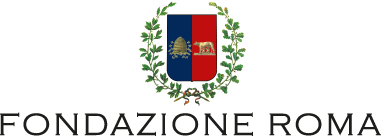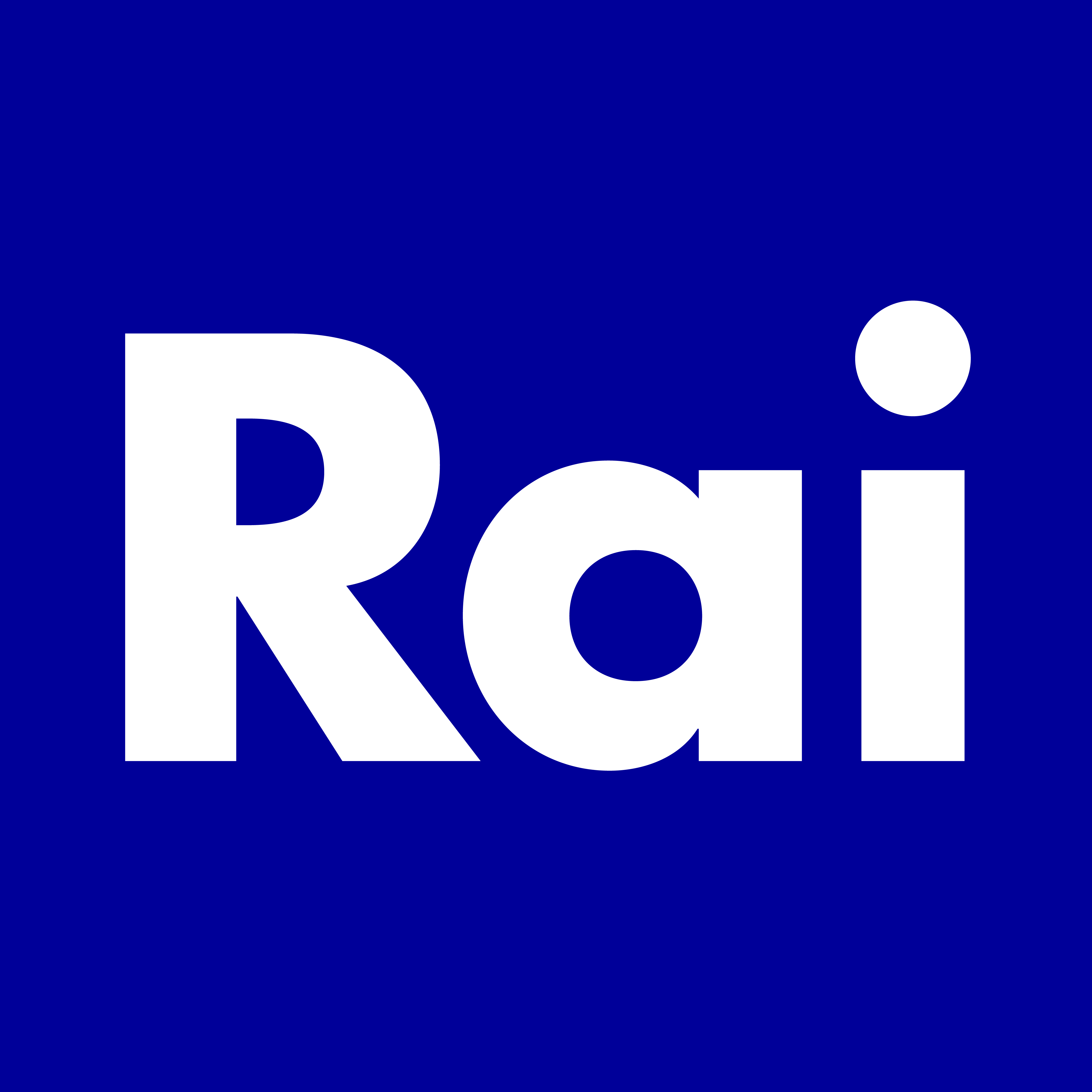ROMAEUROPA FESTIVAL – FORTIETH EDITION
by Guido Fabiani – President of the Romaeuropa Foundation
The Romaeuropa Festival reaches its fortieth edition. Founded under the guidance of Giovanni Pieraccini and Monique Veaute, it has followed a path that has made it a point of reference in the world of performing arts and culture. Over the years, it has taken on a mediating role between disciplines, languages, and worldviews, consolidating its status as one of Italy’s and Europe’s most significant cultural events.
The name of our Foundation, Romaeuropa, reflects the national and European cultural dimension that has defined our work throughout these forty years. This has also been made possible by an original model that includes the permanent presence on our board of the Embassies of France and Spain, the Goethe-Institut, the British Council, and, in recent years, the General Representation of Flanders in Italy.
The Festival began in 1986 at the Roman venues of the Accademia di Francia – Villa Medici – and the Accademia Tedesca – Villa Massimo.
It is essential to underline that all of this has been made possible thanks to the continuous and significant support of institutions such as the Ministero della Cultura, the Regione Lazio, Roma Capitale, Camera di Commercio di Roma, Dance Reflections by Van Cleef & Arpels, and, starting this year, the Fondazione Roma, in addition to the media partnership with Rai.
As in past years, the Festival is supported and enhanced by a network of important cultural institutions in the city. These include the Teatro dell’Opera di Roma, the Fondazione Teatro di Roma, the Accademia Nazionale di Santa Cecilia, the Azienda Speciale Palaexpo with the extraordinary spaces of the Mattatoio, the Fondazione Musica per Roma, the MAXXI – Museo nazionale delle Arti del XXI secolo, the Fondazione Cinema per Roma, Auditorium Conciliazione, La Fabbrica dell’Attore – Teatro Vascello, Teatro Brancaccio, and Short Theatre.
Over its forty-year history, the Festival has created critical networks supporting and promoting national creativity. For this edition, collaborations include the Piccolo Teatro di Milano – Teatro d’Europa, the Teatro Stabile dell’Umbria, TPE – Fondazione Teatro Piemonte Europa, the Teatro Nazionale di Genova, Scarti – Innovation-focused Theater Production Center of Liguria, Cranpi, and many other committed organizations active across the national territory, alongside a prestigious dialogue with Treccani.
Three special projects will mark this fortieth anniversary.
The first, supported by the Embassy of Spain in Italy, Banca IFIS, and under the patronage of the Instituto Cervantes in Rome, features the Ballet Nacional de España with Marcos Morau, who will open the fortieth edition of the Festival. This event is part of the celebrations marking 160 years of diplomatic relations between Italy and Spain, making it a significant institutional occasion for both countries.
The other two special projects include programming developed in collaboration with the Lithuanian Cultural Institute and performances that continue the three-year project started in 2023 with Flanders State of the Art.
As always, international support continues to enhance the European cultural identity of our Festival. Collaborations continue with the Fonds Podiumkunsten – Performing Arts Fund NL for the Kids & Family section, Institut Ramon Llull, and the Catalan Government. Continued support comes from Villa Medici – Accademia di Francia, the Institut Français, the Fondazione Nuovi Mecenati, the Goethe-Institut, Villa Massimo – Accademia Tedesca in Rome, and the Québec Delegation. For its fortieth edition, the Festival also enjoys the patronage of the Embassies of France, Belgium, Germany, the Netherlands, Lithuania, Denmark, and Greece.
This network of international relations expands through collaborations with prestigious European organizations such as Aerowaves, the EXCENTRIC project – an initiative of Horizon Europe, the EU’s research and innovation program – and co-productions alongside numerous European festivals and theatres.
From Europe, Romaeuropa’s vision also increasingly embraces the global scene, fostering dialogue with the African continent and its artists as well as Japan, Taiwan, South America, Québec, the United States, and the Middle East.
Director Fabrizio Grifasi presents the program shaping the fortieth edition of the REF. This journey, as always, is the result of a team composed of many young people working alongside those who experienced the festival’s beginnings, helping to nurture and renew its roots up to the present milestones. United and defined by specific skills, this team represents the driving force that sustains and invigorates the European and international cultural dimension in which the REF has grown.
Dialogue, exchange, and encounter remain the guiding principles of our activity, hoping that culture may serve as an anchor to face the tremendous political, social, natural, and technological changes shaping the future of our world.
Romaeuropa Between Utopia and Reality
by Fabrizio Grifasi – General and Artistic Director of the Fondazione Romaeuropa
The program of the 40th edition of the Romaeuropa Festival moves within the tension between memory and future, utopia and reality, exploring the power of imagination as a force for change, setting artistic visions in dialogue with the concrete challenges of the present. In this space of exchange, the works of significant figures in music, dance, and theatre encounter the voices of a new generation of artists exploring the boundaries of creation and the legacy of the 20th century.
The Festival opens in collaboration with the Teatro dell’Opera di Roma to celebrate 160 years of diplomatic relations between Italy and Spain. The opening performance is entrusted to Marcos Morau (at REF for the first time in 2013) with the Ballet Nacional de España, directed by Rubén Olmo, in an extraordinary show that pays homage to Colombian photographer Ruven Afanador and his vision of Andalusia and flamenco.
The dialogue between tradition and innovation is reaffirmed through artists and performers engaged in renewing the repertoire. Examples include Civil Society: Entertainment, a new work by William Forsythe co-commissioned by Romaeuropa for the Dresden Frankfurt Dance Company, and Lisa by the company’s new director Ioannis Mandafounis; also featured is La(HORDE) with the Ballet de Marseille, making their Rome debut with excerpts from Room with a View and Age of Contents. Both works are supported by the Dance Reflections by Van Cleef & Arpels project, which renews its partnership with REF this year.
Twentieth-century legacies and innovation intertwine in the Festival’s music program alongside new formats of music theatre, electronic projects, and a diversity of composers and performers with distinctive aesthetics. Featured is the return of the iconic Laurie Anderson with the 2025 version of her live show Let X = X, a tribute by the Accademia Nazionale di Santa Cecilia with its Orchestra and Choir to John Adams, an emblematic figure of American minimalism; encounters between Steve Reich and Christophe Chassol; two concerts by Ryoji Ikeda, spanning live AV and compositions for string ensemble; the performance of Constellation by Christian Marclay, Leone d’Oro winner at the Biennale di Venezia, combining his musical and visual experimentation with works by Stephen O’Malley and Éliane Radigue; Fabrizio Cassol (long-time musical collaborator of Alain Platel) with Lorenzo Bianchi Hoesch; as well as Federico Albanese, Valgeir SigurĂ°sson (former producer of Björk) with Benjamin Abel Meirhaeghe and Elisabeth Klinck (known for her work with Miet Warlop), Lyra Pramuk, ONCEIM, Ensemble Modern, Ensemble Decoder, and Ensemble Miroirs Étendues.
The music program also includes cult names such as Kruder & Dorfmeister, performing their album The K&D Sessions on its 25th anniversary, Alessandro Baricco and Stefano Bollani with Novecento: Il Duello, the musical and visual theatre piece Flammenwerfer by directors Kirsten Dehlholm and Marie Dahl of Hotel Pro Forma with original music and texts by Blixa Bargeld (live on stage), vocal ensemble IKI, and a selection of compositions by Nils Frahm; Mystica, a show blending circus and musical theatre by composers Timo Tembuyser (also performer) and Jens Bouttery, directed by Kaspar Vandenberghe, featuring a group of artists specializing in hair suspension; two projects by Tempo Reale research center celebrating the centenary of Luciano Berio, including Berio a colori, choreographed by Simona Bertozzi with images by Bruno Munari, Roberto Masotti, and Silvia Lelli.
As part of the Lithuania Focus, the Festival presents the gym-instrument music performance Sports Group by Gabriele Labanauskaite, Gaile Griciute, and Viktorija Damerell; the folk/pop band Merope; choreographer Dovydas Strimaitis; and the film Requiem by Jonas Mekas, one of the most important visual artists of the 20th century, inspired by Verdi’s Requiem (in collaboration with MAXXI – Museo nazionale delle Arti del XXI secolo.)
Film and music converge in two special cine-concerts: Whiplash by Damien Chazelle with music by Justin Horvitz performed by the Multiquarium Big Band to mark the film’s 10th anniversary (in collaboration with Accademia Nazionale di Santa Cecilia and Fondazione Cinema per Roma); and a screening of La Haine (L’Odio) by Mathieu Kassovitz on its 30th anniversary, with live music by Asian Dub Foundation.
Fanny & Alexander with Federica Fracassi represents the Italian scene in a new project dedicated to Agota Kristof; Motus with their double Frankenstein; Fabiana Iacozzilli with a new work inspired by the 1972 Andes plane crash; and Gabriele Paolocà with Claudia Marsicano (all in collaboration with La Fabbrica dell’Attore – Teatro Vascello). Also featured: Muta Imago, Chiara Guidi with Societas in a revival of the historic Buchettino; Federica Rosellini staging Marina Carr with visual artist Rä di Martino and music by Daniela Pes; and choreographers Ginevra Panzetti and Enrico Ticconi with the Croatian Contemporary Dance Company.
Several directors and choreographers return to the Festival with national premieres after shaping its history: Akram Khan with his latest work for 14 dancers, blending contemporary and Bharatanatyam dance, created in dialogue with Saudi visual artist Manal AlDowayan and inspired by the landscapes and cultural heritage of AlUla; new creations by Italo-Spanish company KOR’SIA; Greek choreographer Christos Papadopoulos; Cassiel Gaube (at the evocative Villa Medici); and Nigerian artist Qudus Onikeku (the last three supported by Dance Reflections). Brazilian choreographer Lia Rodrigues returns after opening REF2019, now with her new piece Borda (co-produced with Fondazione Teatro di Roma), alongside Delirium by Flemish artist Miet Warlop, debuting in Rome. Making their Festival debut: German choreographer Moritz Ostruschnjak with Non + Ultras, reinterpreting football fan culture; Québec’s Louise Lecavalier; and Taiwan’s U-Theatre, a South Asian excellence blending percussion, martial arts, acrobatics, and music.
On the theatre side, also in national premiere: LA LETTRE by Milo Rau; director Mohamed El Khatib with two works, including Israel & Mohamed with flamenco icon Israel Galván; Valentina by French director Caroline Guiela Nguyen, returning after the success of Saigon (2017), co-produced with Fondazione Teatro di Roma and Piccolo Teatro di Milano; a dialogue between Lebanese artist Rabin Mroué and Anne Teresa De Keersmaeker (co-produced with Short Theatre); and the return of the Flemish collective Berlin, now leading NTGent, as part of the three-year program with the Flemish Government.
At the Pelanda at Mattatoio, ULTRA REF unfolds with the section curated by Maura Teofili dedicated to Italian dramaturgy, presenting new works by Alice Sinigallia, Agnese Banti, Pietro Turano, Pietro Angelini, and Caterina Marino, plus the winners of the Powered by REF call. The choreography program curated by Francesca Manica features Ermira Goro (Greece), Janet Nova (Galicia), Armin Hokmi (Germany), and Italian artists Francesca Santamaria, Vittorio Pagani, Matteo Sedda, and Aristide Rontini, as well as finalists from the DNA Appunti Coreografici 2025 call. Ultra Club explores the intersections of digital, pop, and avant-pop music, curated by Federica Patti, Giulia Di Giovanni, and Matteo Antonaci, with Populus, Tarta Relena, Maria Arnal, Ginevra, Altea, Fuera, Gaia Banfi, Cosimo Damiano, Sara Persico, Le parole delle canzoni – Treccani, a focus on the Dischi Sotterranei label, the Re:Humanism project, and DJ sets.
REF Kids, curated by Stefania Lo Giudice, includes the Beatles reimagined for children by La Petita Malumaluga as part of a focus on Catalan children’s companies, stories by La Luna nel Letto founded by Michelangelo Campanale, La RusticaXBand, No Funny Stuff, a free playground, and performances by Frankie Back from Hollywood, Guillem Alba, Mann || Co, and Fossick Project.
Also featured: Ghost Track with Gioia Salvatori; Design Talks coordinated by David Aprea and curated by Stefano Cipolla and Studio Mistaker; education partnerships with La Sapienza – Università di Roma, Accademia Nazionale d’Arte Drammatica Silvio d’Amico (Silvio d’Amico Directing Prize), Accademia di Belle Arti di Roma, RUFA, NABA, IED, ISIA, and the Peparini Academy; and a dramaturgy network with Premio Riccione per il Teatro and Premio Tondelli.
Finally, in dialogue with organizations such as Io Se Posso Komunico, REF organizes accessibility initiatives, including content in Italian Sign Language (LIS) and dedicated programs.
In this time of profound transformation, we passionately pursue the art of encounter – a valid Re-ART EU – for creation and culture.















